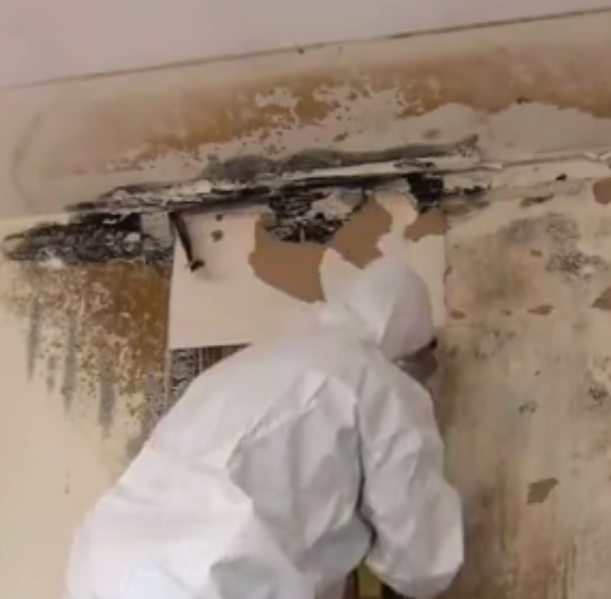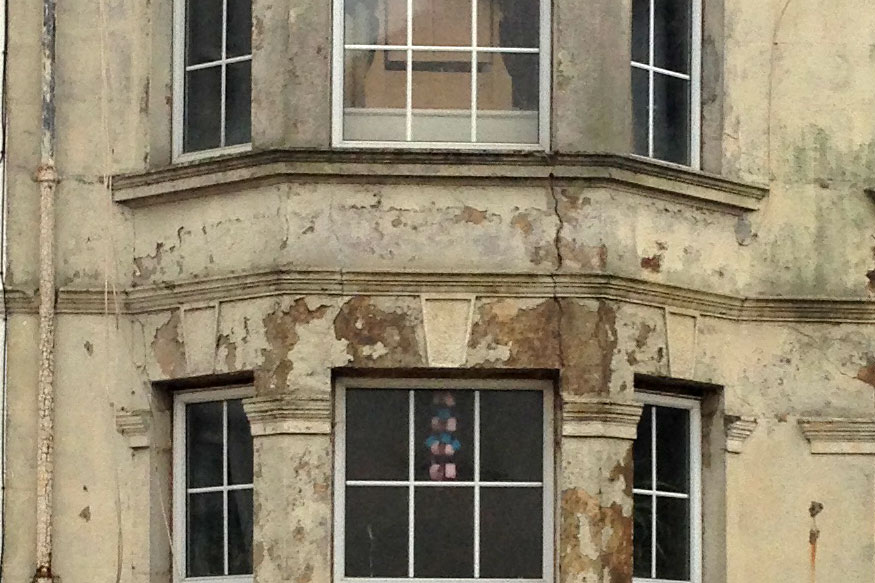What Is a Mold Specialist Called?
A mold specialist is usually called either a mold inspector or a mold remediation specialist. Inspectors focus on testing and identifying mold, while remediation specialists remove mold safely and prevent it from returning. In some cases, a single company provides both services under one roof.
This matters because mold isn’t just unsightly — it can impact your health, damage your home, and lower property value. If you’re searching for a mold specialist in New Jersey or the surrounding area, it helps to know exactly which professional to call for your situation.
What Does a Mold Inspector Do?
A mold inspector identifies whether mold is present, where it’s located, and how severe the problem may be. Using tools like air sampling kits, thermal imaging cameras, and moisture meters, inspectors look for both visible and hidden mold.
The EPA recommends mold inspection after moisture issues like flooding or leaks. Inspectors don’t remove mold, they just identify it, providing the information that fuels remediation.
You might hire a mold inspector if you’re noticing musty odors, experiencing unexplained allergy symptoms, or buying a new home and want peace of mind before closing. For more details, see the common signs you need a mold inspection in urban environments like NYC.
What Does a Mold Remediation Specialist Do?
A mold remediation specialist handles the “treatment” side of the process. Their role includes containing the affected area, removing contaminated materials, cleaning surfaces, and restoring air quality.
The CDC warns that improper mold cleanup can spread mold spores, which makes the problem worse. Remediation specialists use specialized equipment like HEPA vacuums, negative air machines, and antimicrobial treatments to eliminate mold safely.
When should you call a remediator? If mold has already been confirmed, or if you see visible growth after water damage, it’s time to act quickly with a certified professional. You can also dive deeper into what a mold remediation specialist does before hiring one.
Do You Need a Mold Inspector or a Remediator?
Think of it like visiting a doctor. The inspector provides the diagnosis, while the remediator provides the treatment.
- If you aren’t sure whether mold is present → start with an inspector.
- If you already see mold or know it exists → call a remediation specialist.
- If you want a one-stop solution → some companies provide both services.
For many homeowners, both professionals play a role in fully solving the problem. An inspection confirms mold, and remediation makes sure to get rid of it.
Are Mold Specialists Licensed or Certified?
Yes. Reputable mold specialists hold certifications or licenses that prove training and compliance with industry standards. Common credentials include:
- IICRC (Institute of Inspection Cleaning and Restoration Certification) – focused on mold remediation and water damage training.
- ACAC (American Council for Accredited Certification) – certifies indoor air quality and mold inspectors.
- State Licensing – some states, including New York and Florida, require mold contractors to hold a license.
Without a certified mold professional, your health, safety, and the job’s quality are at risk. Certified professionals also provide documentation for insurance or real estate purposes.
What’s the Difference Between a Mold Specialist and an Environmental Hygienist?
A mold specialist focuses specifically on identifying and removing mold. An environmental or industrial hygienist evaluates broader air quality issues, testing for chemicals, asbestos, and workplace hazards besides to mold.
A mold inspector or remediation specialist is enough for most residential and smaller commercial cases. But large facilities under greater sterilization scrutiny, like a hospital or school, might need an environmental hygienist alongside a mold specialist.
When Should You Call a Mold Specialist?
You should call a mold specialist when:
- A flood, burst pipe, or roof leak has caused water damage.
- You notice visible mold growth on walls, ceilings, or floors.
- Household members experience persistent coughing, allergies, or asthma flare-ups.
- You’re buying or selling property and need confirmation of mold status.
- You live in a humid area where mold thrives in basements or attics.
Remember, mold can start growing within 24–48 hours of water exposure. Act quickly to keep small issues from festering into large, costly problems. Humid summers can make mold testing especially important in places like Essex County, NJ.
What to Expect During a Mold Specialist Visit
When you call a mold specialist in New Jersey, here’s what usually happens:
- Initial Consultation – The specialist asks about recent leaks, health concerns, and building history.
- Inspection or Testing – They check for visible growth, use moisture meters, and may take air or surface samples.
- Written Plan – If you need remediation, they provide a detailed scope of work and estimate.
- Containment & Removal – The area is sealed off, mold is removed, and contaminated materials are safely disposed of.
- Cleaning & Treatment – Surfaces are scrubbed, HEPA-vacuumed, and treated with antimicrobial products.
- Drying & Prevention – Dehumidifiers or structural drying equipment remove excess moisture.
- Post-Remediation Verification – In some cases, a third-party inspector confirms the area is safe.
This step-by-step process ensures mold is fully addressed and won’t come back.
How Much Does a Mold Specialist Cost?
The cost depends on whether you need inspection, remediation, or both.
- Mold inspection is generally more affordable and provides documentation of mold presence.
- Mold remediation costs more, since it involves more work like containment, removal, and restoration.
Factors include property size, level of contamination, and materials affected. Hiring a certified mold specialist may seem more expensive than DIYing it. But without that expertise, the mold could grow back or not be addressed properly in the first place. You’re saving money by preventing regrowth and protecting your property value.
Can a General Contractor Handle Mold, or Do You Need a Specialist?
Some general contractors may claim they can remove mold. Unless they have one of the certifications listed above, they lack the training and gear required for safe remediation.
Without proper containment and negative air systems, spores can spread through your HVAC system and affect the entire property. Also, insurance companies may deny claims if unlicensed contractors perform remediation.
For health, safety, and legal reasons, it’s best to hire a licensed mold specialist.
Why Is It Risky to Ignore Mold?
The CDC reports that mold exposure can cause respiratory irritation, wheezing, headaches, and asthma flare-ups. Children, seniors, and people with weakened immune systems are especially vulnerable.
Ignoring mold also damages building materials like drywall, wood, and insulation, which may need costly replacement. Finally, real estate laws in many states require sellers to disclose known mold problems. If left unaddressed, property values will plummet.
What Qualifications Should a Mold Specialist Have?
Before hiring a mold specialist, look for:
- Certification from IICRC or ACAC.
- State licensing (if required).
- Liability and workers’ comp insurance.
- Positive reviews or client references.
- Experience with both residential and commercial properties.
These qualifications show professionalism and reduce your risk as a homeowner.
Do Mold Specialists Handle Black Mold?
Yes. Black mold (Stachybotrys chartarum) is one of the most concerning strains because its extremely hazardous to human health. Certified mold specialists are trained to remove it safely using protective gear and strict containment procedures.
DIY attempts with bleach or home cleaners are risky and rarely effective. Professional remediation is the safest option for dealing with black mold.
Do You Always Need Testing Before Remediation?
Not always. If mold is clearly visible, remediation can often begin without testing. But, testing may be recommended when:
- You suspect hidden mold inside walls or HVAC systems.
- A property sale requires official documentation.
- You want to confirm remediation success.
Testing adds cost, but often it provides peace of mind and proof for insurance or real estate needs. That’s why mold testing should be part of every renovation plan — especially in cities like New York.
Do You Really Just Need Bleach to Kill Mold?
One of the biggest myths is that bleach solves mold problems. While bleach may kill surface mold, it doesn’t penetrate porous materials like drywall or wood. The root cause often remains, allowing mold to grow back quickly.
Certified mold specialists use professional-grade treatments and drying equipment to treat the root cause of the problem, removing it from the source.
Mold in a New Jersey Basement
Imagine a family in northern New Jersey discovered black mold in their finished basement after a heavy summer storm. A mold inspector confirmed contamination through air sampling. A remediation team then removed contaminated drywall, treated the remaining surfaces, and installed dehumidifiers.
This made the family’s basement was safe to use again, and their property value was preserved for a future home sale. If you’re planning upgrades after remediation, here’s a guide to Morris Plains NJ home remodeling contractors to keep your project on track.
Why Hire a Qualified Mold Specialist
A mold specialist is most often referred to as a mold inspector or a mold remediation specialist. Inspectors diagnose the problem, while remediators treat it. Sometimes, one company performs both roles.
Hiring a certified professional protects your health, preserves your property, and ensures compliance with industry standards.
If you’re looking for a trusted mold specialist in New Jersey, visit Mold Doctor to schedule professional inspection and remediation services. Acting early prevents bigger problems tomorrow.
Disclaimer
This article is for educational purposes only and does not replace professional mold inspection or remediation. Always consult a certified mold specialist if you suspect mold in your home or workplace.



